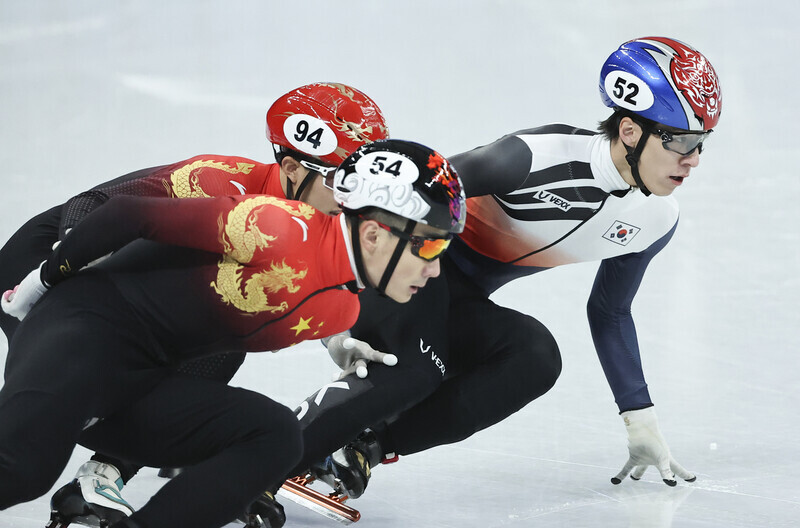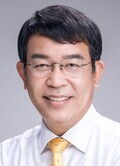hankyoreh
Links to other country sites 다른 나라 사이트 링크
[Column] Stoking anti-China sentiment is a foreign policy dead end


It happened on March 30, 2010, four days after the ROKS Cheonan corvette sank off the coast of Baengnyeong Island. Perhaps Joint Chiefs of Staff Chairman Gen. Lee Sang-eui was feeling deeply humiliated at this turbulent time, when suspicions that a North Korean attack had been responsible for the corvette’s fate were mounting.
That day, North Korean patrol boats approached Baengnyeong Island, mixed in with Chinese fishing boats. Observing this from the Joint Chiefs’ command and control room by way of the Navy’s tactical command and control system, Lee sensed that a new kind of situation was unfolding.
Immediately, he issued an order to strike. “North Korean vessels are crossing over the Northern Limit Line,” he said. “Open fire!”
In a hurry, the Navy operational commander and 2nd Fleet commander came on the JCS chairman’s videoconferencing system and tried to talk him down. “You can’t open fire,” they said. “There are Chinese fishing boats there.”
Lee protested. “When I say open fire, I mean open fire. Why aren’t they firing?” he said.
The operational commander said, “What do you propose to do if that creates problems with China?”
“Even so. Open fire!” Lee replied.
The operational commander grew more adamant. “I thought the operations SOP you yourself passed down says they aren’t supposed to fire?”
Lee, who had never actually worked with the Joint Chiefs, said, “What are you talking about?”
The operational commander took out a copy of the operations SOP. “It’s right here on page [number]!”
At that moment, then-Minister of National Defense Kim Tae-young happened to be passing by on an inspection. He came into the command and control room and saw the scene that was unfolding.
“What are you talking about firing on?” he asked. After hearing what the situation was, he was aghast.
“Halt all activities!” he shouted.
Such is the tale of how the South Korean military did not end up using armed force against Chinese fishing boats.
Speaking about illegal fishing by Chinese boats in an interview with the Segye Ilbo newspaper a few days ago, Democratic Party presidential nominee Lee Jae-myung said, “That’s a violation of territorial waters. We should sink them.”
“Would we look the other way if it were Somalian [pirates]?” he asked.
He went on to stress how aggressive he planned to be about cracking down on illegal fishing by North Korean and Chinese boats. “I’m saying what needs to be said,” he added.
But talk of “sinking” the boats does not count as something that needs to be said. It’s also in violation of the operational SOP, which could be seen as the standard procedure for operations according to international law and the South Korean armed forces.
If Lee were to actually issue an order to sink those boats after becoming president, the minister of national defense and Navy commander would not comply. Is that the sort of president he wants to be?
Coming at a time when biased judging and “hanbok appropriation” by China have emerged as contentious issues at the Beijing Winter Olympics, Lee’s comments give the impression that the candidate wants to tap into anti-Chinese sentiment to boost his election chances.
Meanwhile, People Power Party nominee Yoon Suk-yeol has been expressing overtly anti-Chinese attitudes and agitating for a harder line on Beijing, with his talk of “backing out of the inter-Korean military agreement,” “potentially launching a preemptive strike on the North,” “pursuing additional anti-missile system deployment,” and “doing away with our submissive diplomacy toward China,” as well as his remark that “young [South Koreans] dislike China.”
With now even Lee making similar statements, it’s left the South Korean public feeling very uneasy.
This week, the online edition of the US foreign policy and national security magazine Foreign Affairs published an opinion piece by Yoon titled “South Korea Needs to Step Up.”
The piece operates on the premise that a “foreign policy tailored mostly to improving relations with North Korea has allowed Seoul’s role in the global community to shrink,” and that “the U.S.-South Korean alliance has drifted owing to differences between the two countries on North Korea policy.”
Yoon also attacked the current administration for the diplomatic capitulations of its “strategic ambiguity,” claiming that South Korea had sacrificed its own security interests in bowing to Chinese economic retaliation.
In the piece, Yoon signaled that he is willing to accept tensions and disastrous consequences in relations with Beijing. He made his anti-China colors very apparent, parading his willingness to create political tensions on the Korean Peninsula. His contribution alone is enough to make China perceive him as a disturbing and dangerous figure.
With how the presidential election is shaping up, it appears very likely that there will be a foreign affairs and national security crisis in South Korea-China relations during the next administration, regardless of who ends up in the Blue House. This means a greater chance that the feelings of loss and anger that have built up among South Koreans amid the current long-term stagnation and recession may end up boiling over into antipathy toward China.
To be sure, China deserves criticism for its return to authoritarianism and its high-handed behavior in Taiwan, Hong Kong and the South China Sea. We will also need to respond more assertively if China attempts to dismiss South Korea as a “small country.”
But we should be talking about that in terms of public values like the need to maintain a balance of power and abide by rules and norms. We should not be basing our discussion on feelings of antipathy or hatred.
I can’t speak for what represents “capitulation” and what represents “ambiguity.” But I also can’t see any reason for stirring up conflict that will lead to us paying a price we don’t have to pay.
Even if this election is not going to be an occasion for asserting our dignity as a mature country capable of keeping our surrounding political system on a stable footing, there can be no justification for poking sore spots or pushing buttons in international relations in a way that paints South Korea as being a “dangerous” or “revisionist” country in the eyes of the world.
Please direct questions or comments to [english@hani.co.kr]

Editorial・opinion
![[Editorial] Penalties for airing allegations against Korea’s first lady endanger free press [Editorial] Penalties for airing allegations against Korea’s first lady endanger free press](https://flexible.img.hani.co.kr/flexible/normal/500/300/imgdb/original/2024/0502/1817146398095106.jpg) [Editorial] Penalties for airing allegations against Korea’s first lady endanger free press
[Editorial] Penalties for airing allegations against Korea’s first lady endanger free press![[Editorial] Yoon must halt procurement of SM-3 interceptor missiles [Editorial] Yoon must halt procurement of SM-3 interceptor missiles](https://flexible.img.hani.co.kr/flexible/normal/500/300/imgdb/child/2024/0501/17145495551605_1717145495195344.jpg) [Editorial] Yoon must halt procurement of SM-3 interceptor missiles
[Editorial] Yoon must halt procurement of SM-3 interceptor missiles- [Guest essay] Maybe Korea’s rapid population decline is an opportunity, not a crisis
- [Column] Can Yoon steer diplomacy with Russia, China back on track?
- [Column] Season 2 of special prosecutor probe may be coming to Korea soon
- [Column] Park Geun-hye déjà vu in Yoon Suk-yeol
- [Editorial] New weight of N. Korea’s nuclear threats makes dialogue all the more urgent
- [Guest essay] The real reason Korea’s new right wants to dub Rhee a founding father
- [Column] ‘Choson’: Is it time we start referring to N. Korea in its own terms?
- [Editorial] Japan’s rewriting of history with Korea has gone too far
Most viewed articles
- 160% of young Koreans see no need to have kids after marriage
- 2Months and months of overdue wages are pushing migrant workers in Korea into debt
- 3[Editorial] Penalties for airing allegations against Korea’s first lady endanger free press
- 4[Reporter’s notebook] In Min’s world, she’s the artist — and NewJeans is her art
- 51 in 3 S. Korean security experts support nuclear armament, CSIS finds
- 6Bills for Itaewon crush inquiry, special counsel probe into Marine’s death pass National Assembly
- 7[Guest essay] Maybe Korea’s rapid population decline is an opportunity, not a crisis
- 8Cracks found in containment building of UAE nuclear power plant built by S. Korean companies
- 9S. Korea discusses participation in defense development with AUKUS alliance
- 10[Special report- Part I] Worked to death at the ripe age of 22